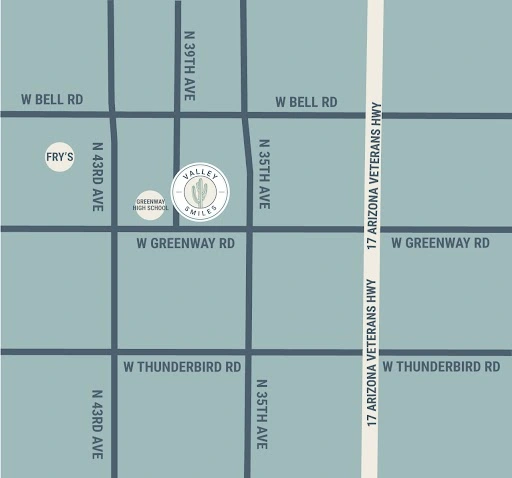Are you tired of waking up with jaw pain, headaches, and worn-down teeth? If so, you’re not alone. Millions of people suffer from bruxism, a condition characterized by grinding or clenching their teeth while sleeping. Fortunately, there’s a simple solution that can protect your oral health: the night guard. But how do you know when it’s time to replace your trusty companion? In this blog post, we’ll explore the signs that indicate it’s time for a new night guard and share tips on finding the perfect fit for your needs. So sit back, relax, and let us guide you through all things night guard related!
The Damage Done By Bruxism
Bruxism is more than just an annoying habit; it can wreak havoc on your oral health. The constant grinding and clenching of teeth can lead to a variety of problems, from worn-down enamel to chipped or cracked teeth. Over time, this excessive force can even cause jaw pain and discomfort.
But the damage doesn’t stop there. Bruxism puts strain on the muscles surrounding the jaw, which can result in tension headaches and facial pain. Additionally, the pressure exerted during grinding can irritate the temporomandibular joint (TMJ), leading to TMJ disorders that cause further discomfort.
Not only does bruxism affect your dental health, but it can also impact your quality of sleep. If you’re constantly grinding your teeth at night, you may experience interrupted sleep patterns or even insomnia.
It’s important to take bruxism seriously and address it promptly. One effective way to protect your teeth from further damage is by wearing a custom night guard while you sleep. This specially designed mouthguard provides a protective barrier between your upper and lower teeth, cushioning them against the impact of grinding.
By understanding the potential consequences of bruxism and taking proactive measures like using a night guard, you can safeguard both your oral health and overall well-being.
How Often Should You Replace Your Custom Night Guard?
How often should you replace your custom night guard? This is a common question that many people with bruxism or teeth grinding have. The truth is, there isn’t one definitive answer as it can vary depending on several factors.
First and foremost, it’s important to consider the quality of your night guard. A well-made custom night guard can typically last anywhere from 1 to 5 years. However, if you notice any signs of wear and tear such as cracks or thinning, it may be time for a replacement. It’s also worth noting that if your night guard becomes uncomfortable or no longer fits properly, it’s definitely time for a new one.
Another factor to consider is the severity of your bruxism. If you have mild bruxism and only grind occasionally, your night guard may last longer compared to someone with severe bruxism who grinds every night.
Additionally, lifestyle habits can affect the lifespan of your night guard. For example, if you frequently clean and care for your night guard properly by following the manufacturer’s instructions, it will likely last longer compared to someone who neglects proper maintenance.
How To Find The Right Night Guard?
Finding the right night guard can make a significant difference in managing bruxism and protecting your teeth from damage. With so many options available, it’s important to consider a few key factors before making your decision.
Consult with your dentist or orthodontist. They will be able to assess the severity of your bruxism and recommend the most suitable type of night guard for you. There are different types available, such as custom-made guards that are molded specifically for your teeth or over-the-counter options that provide a more affordable solution.
Next, consider the material of the night guard. Soft plastic guards are generally more comfortable but may not be as durable as hard acrylic ones. It’s essential to strike a balance between comfort and durability based on your individual needs.
Additionally, pay attention to the fit of the night guard. A properly fitting guard should feel snug but not tight or uncomfortable during sleep. Ill-fitting guards can cause discomfort and even shift out of place during nighttime grinding.
Take into account any additional features you may require. Some night guards offer special designs for individuals with specific dental conditions or jaw alignments.
By considering these factors and discussing them with your dental professional, you’ll have a better chance of finding a night guard that suits both your budget and specific requirements while effectively protecting against bruxism-related damage.
Taking Care of Your Night Guard
Proper care and maintenance are essential to ensure the longevity and effectiveness of your night guard. Here are some tips on how to take care of your night guard:
1. Clean it regularly: After each use, rinse your night guard with cool water to remove any debris or saliva. Use a gentle toothbrush and mild soap to clean it thoroughly at least once a week. Avoid using hot water as it may deform the material.
2. Store it properly: When not in use, store your night guard in its protective case. This will help prevent damage or contamination from bacteria.
3. Avoid excessive force: While wearing your night guard, avoid grinding or clenching your teeth forcefully as this can lead to wear and tear on the appliance.
4. Keep away from pets: Pets may mistake your night guard for a chew toy, so make sure to keep it out of their reach.
5. Regularly check for signs of wear: Inspect your night guard regularly for any cracks, chips, or changes in shape that could affect its fit and function. If you notice any issues, contact your dentist for a replacement.
By following these simple steps, you can extend the lifespan of your night guard and ensure continued protection against bruxism-related damage.
Remember that proper care is crucial not only for maintaining the quality of your night guard but also for ensuring optimal oral health overall!
The time has come to bid adieu to our discussion on night guards. We’ve covered everything from the damage caused by bruxism, to how often you should replace your custom night guard, and even tips for finding the right one. But before we go, let’s take a moment to reflect on what we’ve learned.
Bruxism can wreak havoc on your teeth and jaw if left untreated. The grinding and clenching can lead to worn-down enamel, chipped teeth, headaches, and more. That’s why wearing a night guard is crucial in protecting your oral health.
When it comes to replacing your night guard, there isn’t a set timeline that applies to everyone. It depends on factors like wear and tear, changes in your bite or dental work, and any signs of damage or discomfort.
Finding the right night guard involves considering factors such as comfort, fit, material durability, and affordability. Consulting with your dentist will help you determine which type of night guard is best for you.
Taking care of your night guard is essential for its longevity and effectiveness. Regularly cleaning it with non-abrasive cleaners keeps bacteria at bay while preventing odors from developing.
In conclusion (although we promised not to use those words), maintaining good oral health goes beyond brushing twice a day; it also means taking action against bruxism by using a well-fitted night guard tailored specifically for you. So don’t forget about this important tool in preserving both your smile and overall well-being!
FAQ
Q: How do I know if I need a night guard?
A: If you wake up with jaw pain, headaches, or worn down teeth, it’s likely that you are grinding or clenching your teeth at night. A night guard can help protect your teeth and alleviate these symptoms.
Q: Can I use an over-the-counter night guard instead of a custom one?
A: While over-the-counter options may be cheaper, they often don’t fit as well and provide less protection. Custom night guards are designed specifically for your mouth and offer better comfort and effectiveness.
Q: How long does a night guard typically last?
A: The lifespan of a night guard depends on various factors such as the material used and the severity of your bruxism. On average, custom-made night guards usually last between 2-5 years before needing replacement.
Q: Can I wear my night guard during the day?
A: Night guards are intended to be worn while sleeping to prevent nighttime grinding. Wearing them during the day can interfere with speech and cause discomfort.
Q: Is it possible to clean my night guard at home?
A: Yes! Regular cleaning is essential to maintain oral hygiene. You can clean your custom-made night guard by brushing it gently with toothpaste or using denture cleaner tablets diluted in water.
Remember, if you have any concerns about your specific situation or need further guidance regarding wearing a night guard, consult with your dentist for professional advice tailored to your needs.





